In my last article, “Lessons from the Free Kareem campaign”, I talked about campaigning and why some jailed and persecuted bloggers and online writers are winning sympathy, while others have difficulty attracting the attention of the public. I also discussed the logic behind the success or the failure of campaigning, and made a comparison with the Tunisian cyber-activism case.
In this post I would like to draw attention to a list — which makes no pretensions to completeness — of under-covered advocacy campaigns and point to specific cases of bloggers, online writers and activists whose causes are worth supporting. A few of them have been in prison for years, and a few others are being sued or harassed because of what they are writing online. Not all of them are bloggers, and I personally do not believe that blogging communities should reserve their support and activism for persecuted bloggers and abandon other online writers who suffer harassment and torture. They all deserve our support to protect their basic human rights. One hopes that we can learn from other people's experiences in order to spread the word and raise awareness among blogspheres whose support is crucial in putting an end to a silence that ought not to be allowed to continue.
Blogging about the need for a “better solidarity-based blogosphere”, and commenting on the video made by Mistral, the Tunisian blogger and activist Astrubal said that:
Many things still can be done to help for the release of those who still jailed and certainly much more steps to take to prevent such harms. And whatever it can be done, Mistral is so right when he thinks that it can not be as efficient as actions done by a much solidarity-based blogosphere.
In order to have a clear picture about the disparity in the level of coverage of the following cases, in comparison with the Kareem case, I've posted a few Technorati graphs showing the number of blog posts, containing the studied cases, per day for the last year (please click on the images to see the results). The graphs illustrate the hard work that needs to be done in order to unveil certain injustices and ensure equal support for all persecuted online writers, be they bloggers or not.
ABD AL-MONEM MAHMOUD (Egypt)
Abd al-Monem Mahmoud, a 27 year-old Egyptian Muslim Brotherhood blogger, Ikhwanweb reporter and correspondent for the Cairo-based British Alhiwar channel, was arrested on Sunday April 15, 2007, at Cairo International Airport. It is believed that Abd al-Monem was arrested after reporting on torture. Abd al-Monem, who was detained several times because of his activities as a student at in Alexandria University, spoke last week on a video broadcasted on Youtube, (transcript in Arabic here) about the mistreatment he experienced four years ago while in detention at the State security offices.
The last time I saw Abd al-Monem was at the 3rd annual Al Jazeera Forum at Doha, Qatar at the end of March 2007. In an exclusive interview with Global Voices that I'll be publishing here as soon as we have an English translation, Abd al-Monem Mahmoud talked about his experiences as a blogger and the history of the use of Internet by the Muslim Brotherhood. He also expressed support for his fellow jailed blogger Kareem Amer and explained why the younger generation of the Muslim Brotherhood has chosen blogs as one of the tools in their arsenal.
ROUKANA HAMOUR (Syria)
A Technorati search for “Roukana Hamour” (in Latin characters) won't yield many results. The only result that shows up on Google points to one entry published on Global Voices by Amira Al Hussaini, translated from a post in Arabic I wrote after meeting Ms. Hamour in Dubai last month.
Roukana Hamour is a Syrian blogger. She was taken from her home last year and dragged into the street in her nightgown, after being threatened at gunpoint in front of her young children by members of the country's Criminal Security forces, who had no warrant for her arrest. This incident, which took place on October 15, 2006, was a direct result of Roukana's blogging.
Due to a feud between her and her brothers, Roukana, daughter of a leading Syrian businessman, was denied the right to inherit $20 million of her father’s fortune. She was denied justice because of the involvement in the case of top judicial figures such as the Syrian Justice Minister. After failing to secure of her rights by legal means, she started blogging about her experiences with the Syrian legal system and exposing the corruption on the part of individuals in the country's administrative, banking and judicial sectors, who stood in the way of her claim on her father’s estate. As a result of her writings, Roukana was subjected to a great deal of harassment.
Despite the fact that Roukana received no attention from either the media or any NGO, she is preparing her self for another battle. In a e-mail exchange, she told me that:
LI HONG (China)
On March 20,2007, the Chinese cyber-dissident Zhang Jianhong,(aka Li Hong) member of the Independent Chinese PEN center (ICPC) was sentenced to six years in prison. Zhang, who was arrested last year, was charged with “incitement to subvert the state's authority”. Zhang had posted articles online calling for political reform.
ABDULSALAM BAROUDI (Algeria)
Abdulsalam Baroudi is one of the first Algerian bloggers to be sued by Tlemcen’s Director of Religious Affairs, who has accused the blogger of posting defamatory material on his personal blog on February 20, under the title “Al Sistani Appears in Tlemcen“. In a post translated earlier by GV's Arabic Language Editor, Amira Al Hussaini, Abdulsalam wrote:
I received summons from the Tlemcen Province’s Security to make myself present in front of the Judiciary on Saturday after Tlemcen Religious Affairs Director filed a libel case against me for the article I posted on my blog The Province of Tlemcen on February 20 under the title Al Sistani Appears in Tlemcen.
The official had earlier requested the ministry to allow him to sue me and (by giving him the go ahead) this ministry has now opened the door for the initiation of legal proceedings against bloggers.
This is happening at a time when organisations monitoring freedom of expression have classified Algeria among the countries in which Internet users enjoy a wide freedom in blogging in their 2006 reports which listed four Arab countries – Egypt, Tunisia, Saudi Arabia and Syria – as being restrictive of freedom of expression on the Internet,”
Jeff Ooi (Malaysia)
Jeff Ooi, the outspoken Malaysian blogger — along with the blogger and veteran journalist Ahirudin Attan (aka Rocky's bru) — was sued by the pro-government local English daily New Straits Times Press (NSTP).
On 11 January 2007 the Malaysian courts ordered Jeff to remove all allegedly defamatory posts from his blog, Screenshots, by Jan 17th. This was the first time in the country that a blogger was being sued by a newspaper for what is being published on his blog.
The Malaysian blogsphere responded by launching the “Walk With Us” and Bloggers United campaigns in support of freedom of speech in a country where the media is controlled by the government.
MOHAMED FOURATI (Tunisia)
On March 9, 2007, the Tunisian regime condemned, in absentia, the journalist and blogger Mohamed Fourati to a 14-month prison term on account of two articles he wrote in 2002 in the Tunisian dissident webzine Aqlma online. “The Tunisian government does not permit any opposition, whether in the traditional press or on the Internet,” Reporters Without Borders said in a statement.
Now, the Tunisian regime is refusing to allow Fourati’s wife to leave Tunisia and join her husband in Qatar, where he works for the daily Al-Sharq.
MOHAMMED ABBOU (Tunisia)
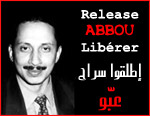 March 1, 2007 marks the second anniversary of the imprisonment of Mohammed Abbou, lawyer, internet writer and human rights defender, who was sentenced to prison for writing online articles criticizing the Tunisian penitentiary system and comparing his country's political prisoners with those held in Abu Ghraib prison in Iraq. Abbou's article was published in August 2004 on the Tunisnews website. During his time in prison he has gone on hunger strikes several times in order to, as he himself puts it, “draw attention to what is happening in my country as regards the repression against all those who voice dissent.”
March 1, 2007 marks the second anniversary of the imprisonment of Mohammed Abbou, lawyer, internet writer and human rights defender, who was sentenced to prison for writing online articles criticizing the Tunisian penitentiary system and comparing his country's political prisoners with those held in Abu Ghraib prison in Iraq. Abbou's article was published in August 2004 on the Tunisnews website. During his time in prison he has gone on hunger strikes several times in order to, as he himself puts it, “draw attention to what is happening in my country as regards the repression against all those who voice dissent.”
On another occasion, he sewed his lips together with staples for four days. The blogger behind …Or Does It Explode? has this to say about the case of Abbou:
Readers may recall that as an act of protest, Abbou last year sewed his own mouth shut – in a gut-wrenchingly symbolic attempt to highlight the suppression of free speech in Tunisia. But our mouths aren't sewed shut, so why is the world so quiet about his case?
In an interview attributed to Tunisian activists, Abbou's wife, Samia, talked about the brutality of the Tunisian regime towards her family.
The following is an extract from the rough translation that was published previously on Global Voices:
I am asking myself if they treated me like that, how about my husband? One told me: you are the wife of Mohamed? He threw me on the floor with rage, and was sweeping the floor with my body, my shoes were off, my bag dropped down, I was screaming until voiceless. He did not consider that I was a woman, that I did nothing to him, that I came for my husband. He had no respect neither for the court, nor the judge, nor the lawyers. These people know no limits, they are like beasts that were put on starvation for 3 days and then released after their victim.
RAMZI BETTIBI (Tunisia)
March 15, 2007 also marks the anniversary of the arrest of Ramzi Bettibi at the internet café where he worked (March 15, 2005). Ramzi was sentenced to four years’ imprisonment for copying, onto a forum board he moderated, an online statement from a group threatening terror attacks if former Israeli prime minister Ariel Sharon attended the World Summit on the Information Society (WSIS) in Tunisia. According to the second report of The Initiative For an Open Arab Internet, “Bettibi was treated violently and his books and CDs were confiscated from his home even though there was no court order to do take these items.”
According to the International Association for the Support of Political Prisoners (AISPP), Ramzi Bettibi has been on open hunger strike since January 18, 2007 in protest against maltreatment and abuse in prison. In a statement published online on March 12th, 2007, the National Council for Freedoms in Tunisia (CNLT) described the way he was tortured:
Le 23 février 2007, Ramzi Bettibi, le prisonnier du net, a été soumis à la violence extrême de 3 officiers en civil dans la prison de Bizerte, et qui se sont présentés comme la brigade de la Sûreté de l'Etat. Ils lui ont attaché les bras et les jambes à une chaise et ont voulu lui faire ingurgiter du lait de force pour qu'il cesse sa grève de la faim commencée en protestation contre des violences perpétrées à son encontre antérieurement. Une des ses dents a été cassée.
C'est la cinquième fois en l'espace de quelques mois que Ramzi Bettibi subit des séances de torture en prison visant à le faire collaborer avec les services de la Sûreté de l'Etat.
This is the fifth time in the space of a few months that Ramzi Bettibi has been tortured in prison, in order to make him collaborate with the State Security services.
NEILA CHARCOUR HACHICHA (Tunisia)
Tunisian blogger and activist Neila Charchour Hachicha was forced to stop blogging since the Tunisian regime threatened her family after she spoke out publicly against Ben Ali's regime on Al Jazeera and at the conference “Dissent and Reform in the Arab World” organized by the American Enterprise Institute in Washington, DC. This is what she wrote in her last article “From Tunisia, a Tale of Cruelty and Silence“, published by the Lebanese Daily Star:
Within a month, the government had made bogus charges against my husband for a real estate transaction, which led to a 10-month prison sentence. Eyewitnesses watched the police confiscate my car, although they continue to deny involvement. Plainclothes police surrounded my house and registered the license plate numbers of all visitors. Some friends told me they received instructions not to visit or contact me. Others alerted me that they were receiving by mail an indecently doctored photo taken of my daughter during her engagement party. The government blocked my Internet connection. Finally the police summoned me for hours of questioning. They asked me to sign a statement never to blame the police again for its abuses.

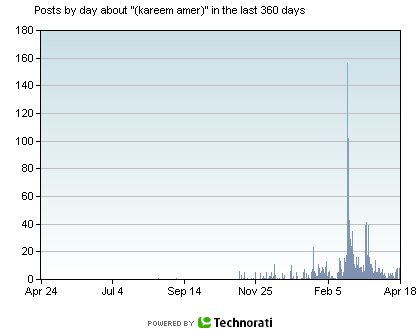
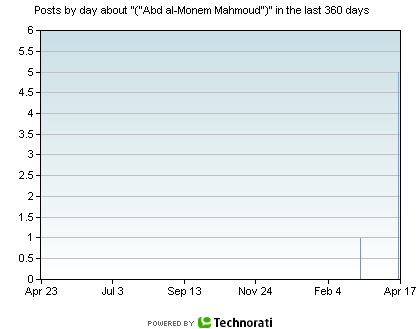
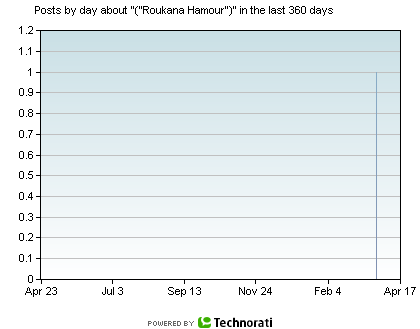
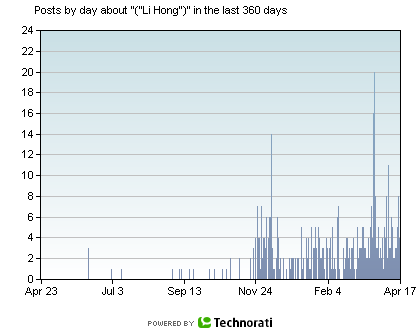

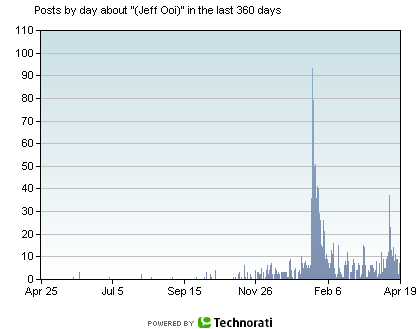
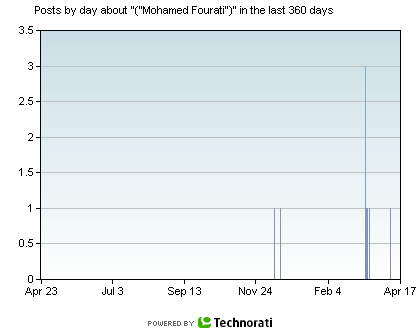
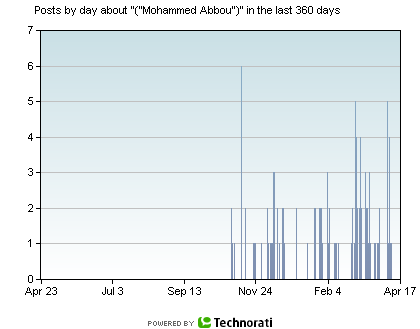



5 comments